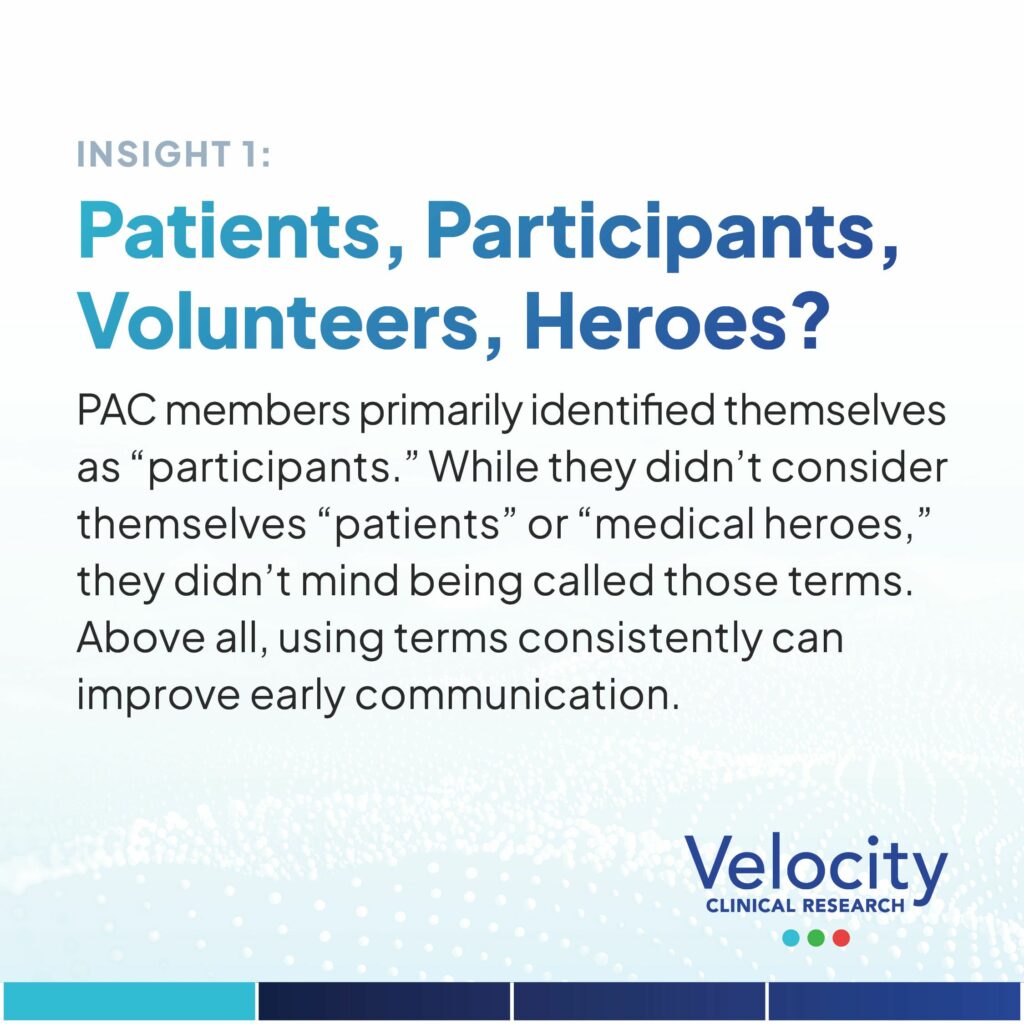To gain deeper insight into the perspectives of clinical trial participants, Velocity has built the Participant Advisory Committee (PAC). The PAC comprises diverse current and past clinical trial participants from across the country. The Velocity PAC convenes regularly to discuss issues and share ideas that could improve the clinical research process now and for future generations.
In our January 2023 PAC meeting, Velocity asked clinical trial participants to share their ‘first impressions’ about clinical trials. Here are four lessons learned:
Demystifying Clinical Trials
Many participants didn’t know much about clinical research when they decided to participate. Though educational materials and site staff play a major part in helping participants feel more informed and at ease early in the process, more education on clinical research is needed among the public. There is an opportunity for Sponsors, CROs, and site networks to collaborate on major campaigns designed to educate the public on the importance, benefits, risks, and process of clinical research.
A small section of the PAC said that some of their loved ones who work in the medical field hesitated to encourage their participation in clinical trials, mostly out of a concern of safety. Working to better educate those in the medical field about the risks, rewards, and safety measures in place within clinical trials may help elevate the conversations among healthcare professionals and patients.
Identity Crisis: Patients, Participants, or Heroes?
The clinical research industry does not have a consensus on a term to describe those who participate in clinical trials — patient, participant, subject, volunteer, and even medical hero are often used interchangeably.
When asked their preference, the PAC members primarily identified as “participants.” While they didn’t see themselves as “patients” or “medical heroes,” they didn’t mind being called such by Sponsors or site staff. Above all, using terms consistently can improve early communication with potential participants.
Speaking on Their Terms
Along the lines of participant-focused language, the PAC members shared clear preferences for certain terms in recruitment advertising and communication. “Paid” is favored over “compensation,” for example. The PAC viewed “clinical trials” and “research studies” as interchangeable, however, they recognized that “research studies” can also include nonclinical studies, whereas “clinical trials” are primarily interventional.
Navigating a Social Minefield
Many PAC members said they avoided discussing their involvement in clinical trials with others, fearing judgement or arguments with those who disagree with them (particularly for vaccine studies). That got us thinking: How can we support current participants who may be willing, but reluctant, to have an open dialogue with their friends, families, and communities? Once again, education and community engagement can help shape more informed perspectives and destigmatize/demystify conversations about clinical research.
In summary, the insights gained from Velocity’s January 2023 PAC meeting shed light on the need for more education and awareness about clinical trials among the public and medical professionals. Consistent and participant-focused language can also improve communication and recruitment. Community engagement may also help to destigmatize conversations about clinical research. These are worthy considerations for improving the clinical trial experience for participants.

